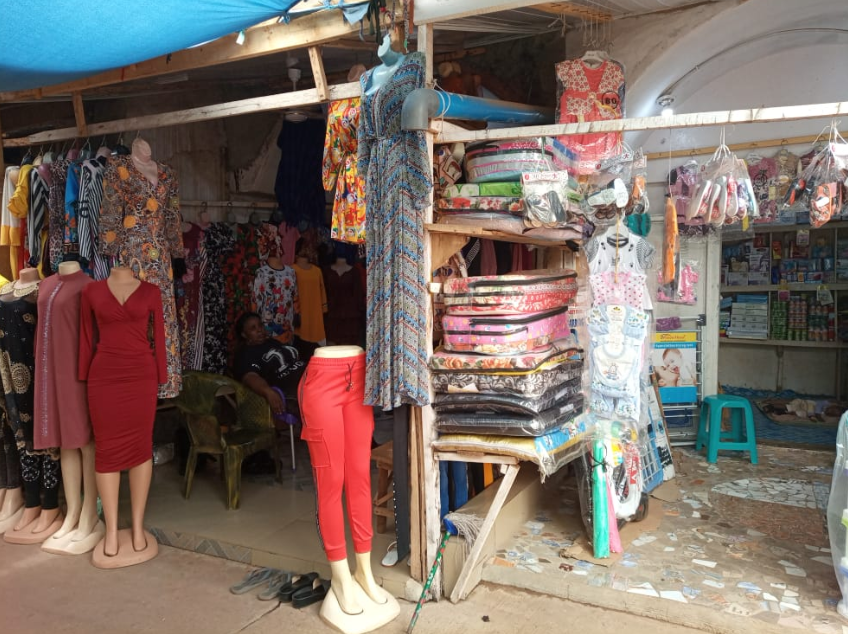Okafor Angela sells female wears around Tasha Alu, Sokoto state capital, Sokoto
BY NZUBE OKONKWO
Small and medium-sized enterprises (SMEs) are the lifeblood of Nigeria’s economy, accounting for around 84 percent of employment and contributing significantly to the country’s GDP. However, these businesses often struggle to access the funding they need to grow and scale, with many facing significant challenges when it comes to securing financing from traditional sources like banks and other financial institutions.
One of the biggest challenges faced by SMEs in Nigeria is limited access to traditional funding sources. Many SMEs do not have the collateral or credit history required to secure loans or other types of financing from banks or other financial institutions.
This is compounded by the high-interest rates and collateral requirements associated with such financing, which can make it difficult for SMEs to repay loans or grow their businesses.
Advertisement
According to the International Finance Corporation (IFC), a member of the World Bank Group, access to finance is one of the most significant constraints to the growth and sustainability of SMEs in Nigeria. Similarly, a 2018 report by the Central Bank of Nigeria (CBN) found that the most significant challenge faced by SMEs in Nigeria is access to finance.
Another significant challenge is the limited support available from venture capital and angel investor networks. While these sources of financing do exist in Nigeria, they are relatively small and often focused on larger, high-growth start-ups. This means that many SMEs are unable to access this type of funding, which can limit their ability to scale and compete in the market.
The Small and Medium Enterprises Development Agency of Nigeria (SMEDAN) noted that most SMEs in Nigeria operate without adequate funding or credit support. Additionally, a report by the International Trade Centre (ITC) found that the vast majority of Nigerian SMEs are underfunded, with only 15 percent of SMEs accessing formal credit.
Advertisement
The regulatory environment in Nigeria can also make it difficult for SMEs to access financing, especially from foreign investors. Nigerian policies and bureaucracy can create barriers for SMEs seeking funding, and many foreign investors are hesitant to invest in Nigerian SMEs due to concerns around the country’s business climate and political instability.
These challenges mean that many SMEs in Nigeria are forced to rely on personal savings or informal sources of financing, which can limit their ability to grow and scale. This is especially problematic for businesses that are seeking to expand into new markets or introduce new products or services, as the costs associated with these endeavours can be significant.
However, there is hope for Nigerian SMEs seeking financing. Crowdfunding presents a viable alternative for SMEs to access funding and can help to fill the funding gap left by traditional sources of financing. While crowdfunding is still a relatively new and underutilized option in Nigeria, it has the potential to provide SMEs with access to a wider pool of potential investors and can be a cost-effective way to raise capital without giving up equity or taking on debt.
In conclusion, the challenges faced by SMEs in Nigeria when it comes to accessing funding are significant, but not insurmountable. Alternative financing options like crowdfunding can help to bridge the gap left by traditional sources of financing and provide Nigerian SMEs with the capital they need to grow and thrive. By addressing these challenges, Nigeria can unlock the full potential of its SME sector and drive economic growth and prosperity for all.
Advertisement
Nzube Okonkwo is a renowned author and Programs Lead at Evolve Africa
Views expressed by contributors are strictly personal and not of TheCable.
Add a comment






